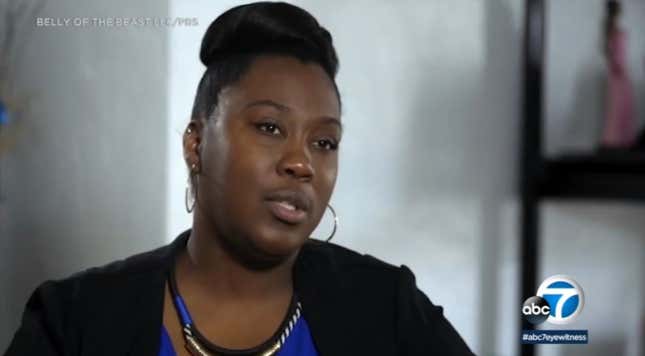
California Gov. Gavin Newsom has signed the state budget, and included in the budget is $75 million in reparations for survivors of forced sterilizations of prison inmates allowed under the state’s eugenics laws. Thousands of women—some of whom were sterilized without their consent as early as 11 years ago—are set to be paid in an effort by the state to make right its egregious and immoral sanctioning of a practice that denied incarcerated women the right to decide what to do with their own bodies.
According to ABC 7, California will be the third state in the U.S. to pay reparations to the victims of forced sterilization and the first to pay them to women who were victimized while incarcerated.
“Oh my goodness. I can’t even explain the overjoyed feeling that I have. But also the feeling of relief,” survivor Kelli Dillon—whose story sparked the investigation into the state’s eugenics practices after it was featured in the documentary Belly of the Beast—told ABC. “The advocacy, the journey of justice we’ve been on has been 20 years for me, but for some survivors has been for over 40 years.”
In fact, according to The Guardian, the history of forced sterilizations in California dates back to 1909 and was reportedly the inspiration for eugenics programs in Nazi Germany. But investigators found hundreds of women were victimized by the practice as late as 2010, even though it was illegal by then.
As for Dillon, her attorney obtained medical records showing that when she was an inmate in the Central California women’s facility in Chowchilla in 2001, the then 24-year-old underwent what was supposed to be an operation to take a biopsy and remove a cyst, but surgeons removed her ovaries during the procedure without her knowledge or consent.
The state’s new reparations initiative isn’t stopping at women like Dillon who were victimized in prison. It’s also looking to right wrongs dating back to the early history of the practice.
From the Guardian:
The new California reparations program will also seek to compensate hundreds of living survivors of the state’s earlier eugenics campaign, which was first codified into state law in 1909 and wasn’t repealed until 1979.
That law allowed state authorities to sterilize people in state-run institutions, who were deemed to have “mental disease which may have been inherited” and was “likely to be transmitted to descendants”. The law was later greatly expanded to include “those suffering from perversion or marked departures from normal mentality”. Those targeted were often Black or Latina women, though some men were sterilized as well.
“California established these egregious eugenics laws, that were actually even followed by Hitler himself, in an effort to curb the population of unwanted individuals or people with disabilities,” said the state assemblywoman Wendy Carrillo, who introduced the bill to create the compensation program.
She said, in all, more than 20,000 people were sterilized in California, including the historic cases prior to 1979 and hundreds of additional cases in the prisons documented until 2010. Many of the historical survivors have since died, but the state believes about 400 are still living, about a quarter of whom are expected to apply for compensation.
According to ABC, a “coalition of organizations” will be tasked with finding survivors, some of whom are still unaware they were sterilized in state prisons. Officials estimate individual payments of up to $24,000, starting with an initial payment of around $12,000.
Some might find it difficult to believe that the undeniably evil practice of forced sterilization went on for so long and until so recently, but if you know America, it isn’t as much shocking as it is typical of the nation’s history of cruelty towards people society deems less than—especially considering the most recent cases involve primarily Black and Latina victims, according to the Guardian.
Hopefully, every state in the nation with a similar history follows California in attempting to make amends for past evils.
“No monetary compensation will ever rectify the injustice of this,” Carrillo said. “But there is a level of dignity that is bestowed on the survivors by the acknowledgment that this happened. If we don’t do this now, when will we?”

